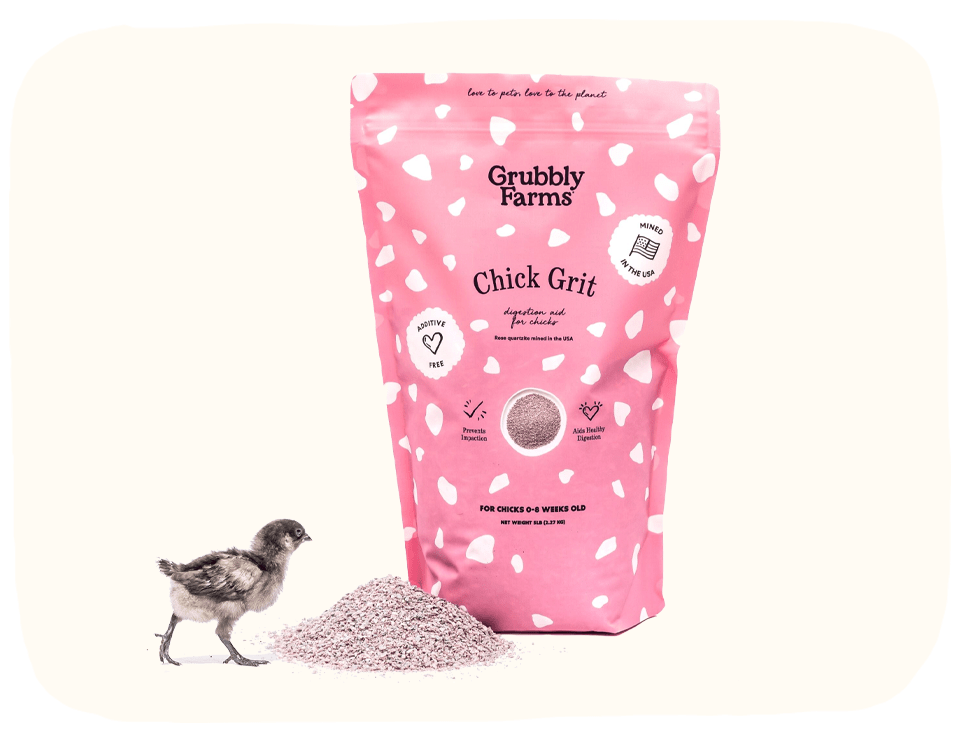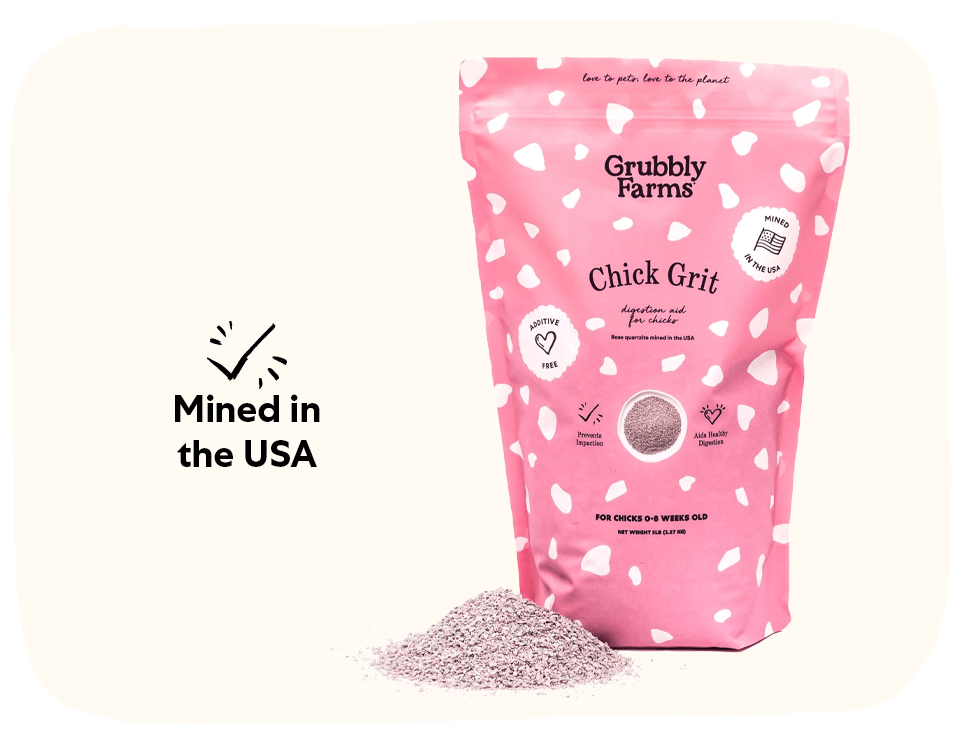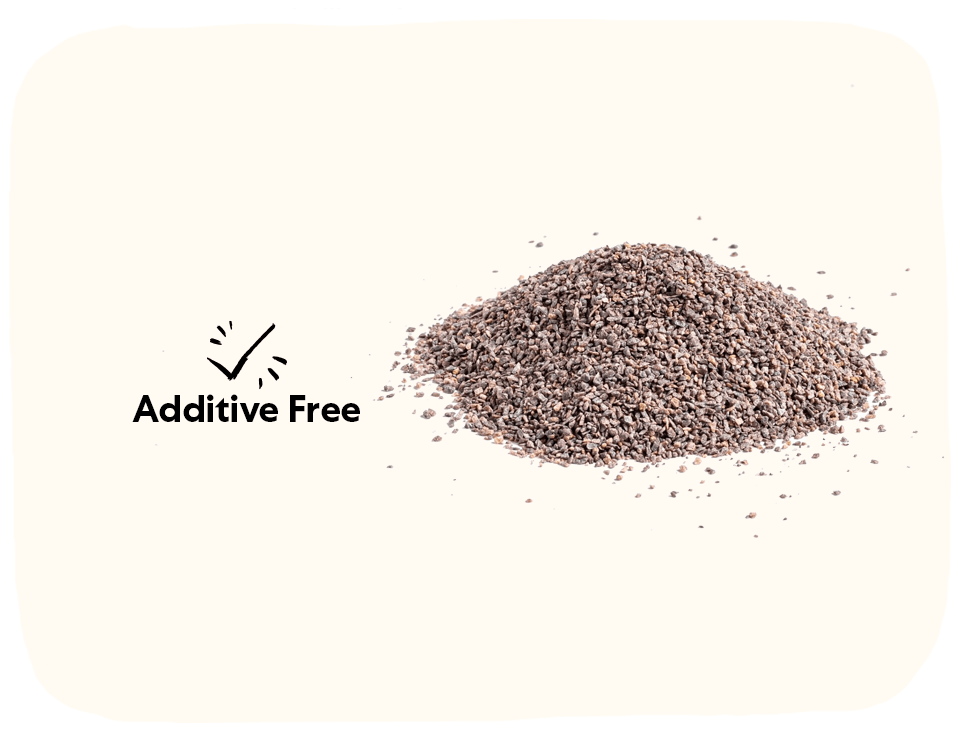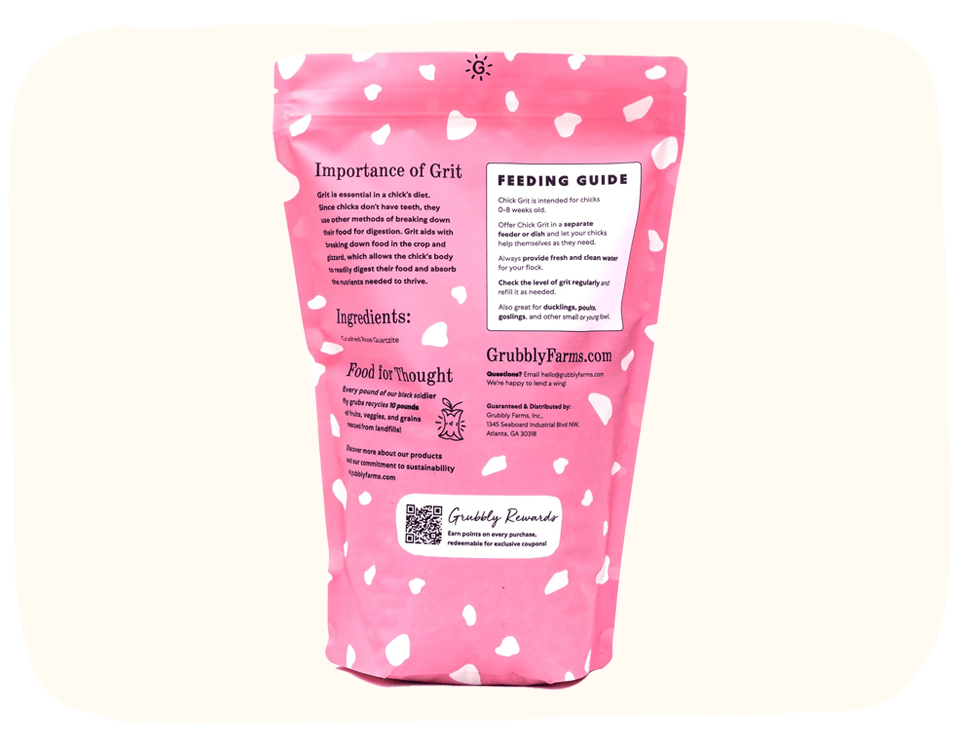Chick Grit
digestive aid • 0-8 Weeks Old
Chick Grit
digestive aid • 0-8 Weeks Old
Grit is essential in a chick's diet. It aids with breaking down food in the crop and gizzard, helping to prevent impaction and promoting healthy digestion. Our grit is made up of pure rose quartzite, a durable mineral that doesn’t break down by stomach acid.
Size: 5 lb
-
- Crushed rose quartzite, free of chemical additives
- For chicks 0-8 weeks old
- Helps prevent impaction and aids in healthy digestion
- Also great for ducklings, poults, goslings, and other small or young fowl
- Try our Chicken Grit for poultry older than 8 weeks
-
- Offer Chick Grit in a separate feeder or dish and let your chicks help themselves as they need.
- Always provide fresh and clean water for your flock.
- Check the level of grit regularly and refill as needed.
Four Reasons to Love Chick Grit
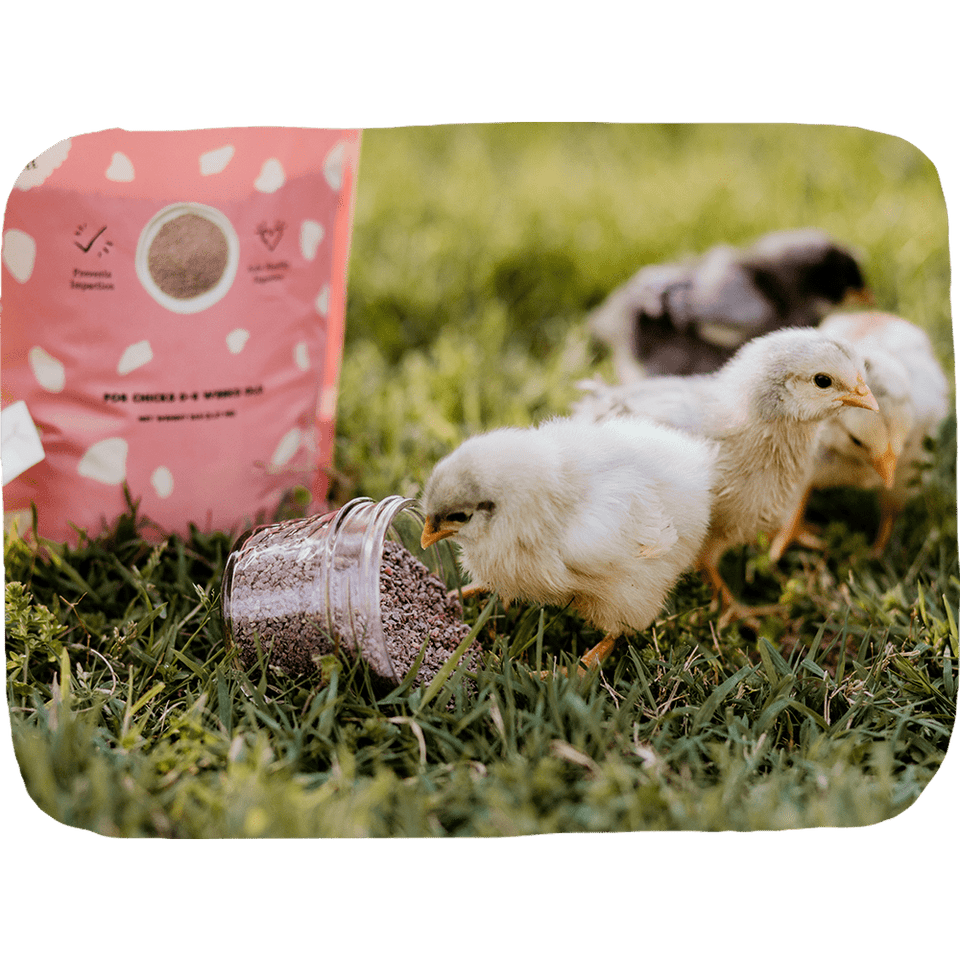
1. Prevents Impaction
Aids with breaking down food in the crop and gizzard.
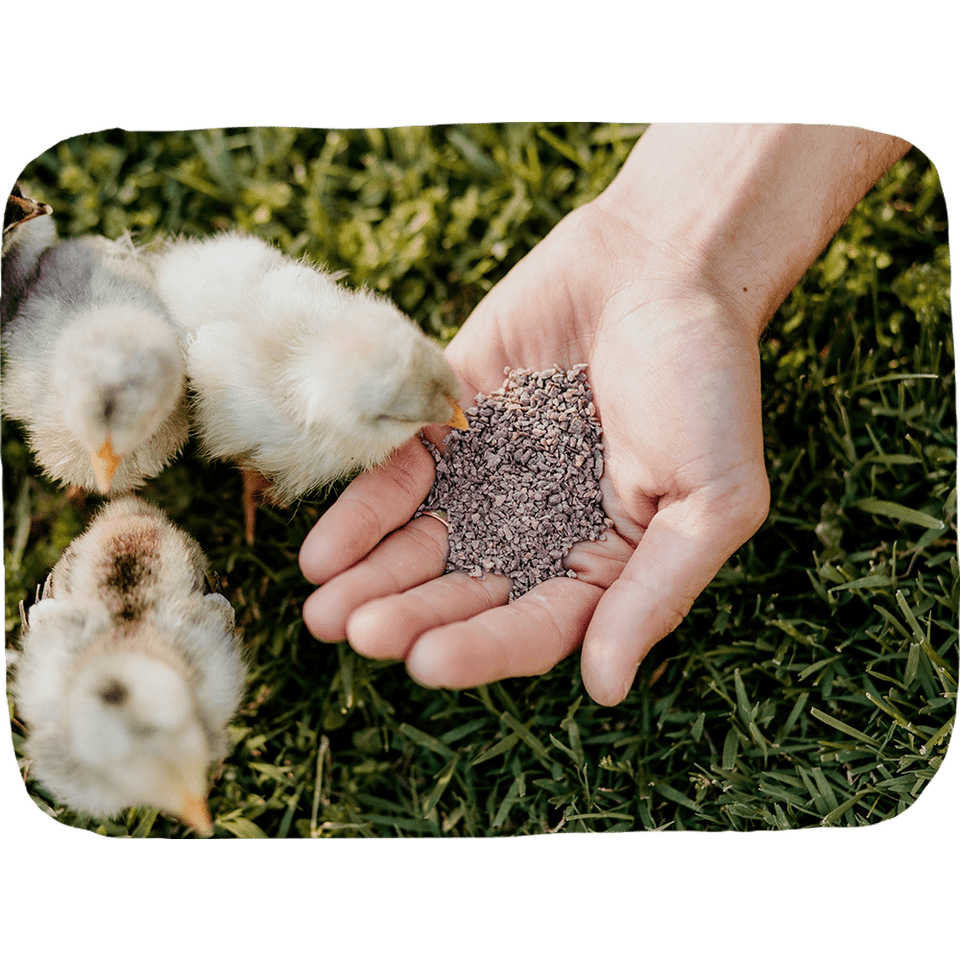
2. Aids Healthy Digestion
Gives chicks the grit they need to break down feed and soak up nutrients.

3. No Harmful Additives
Pure, natural quartz—no fillers, dyes, or chemicals. Just clean support for healthy chicks.
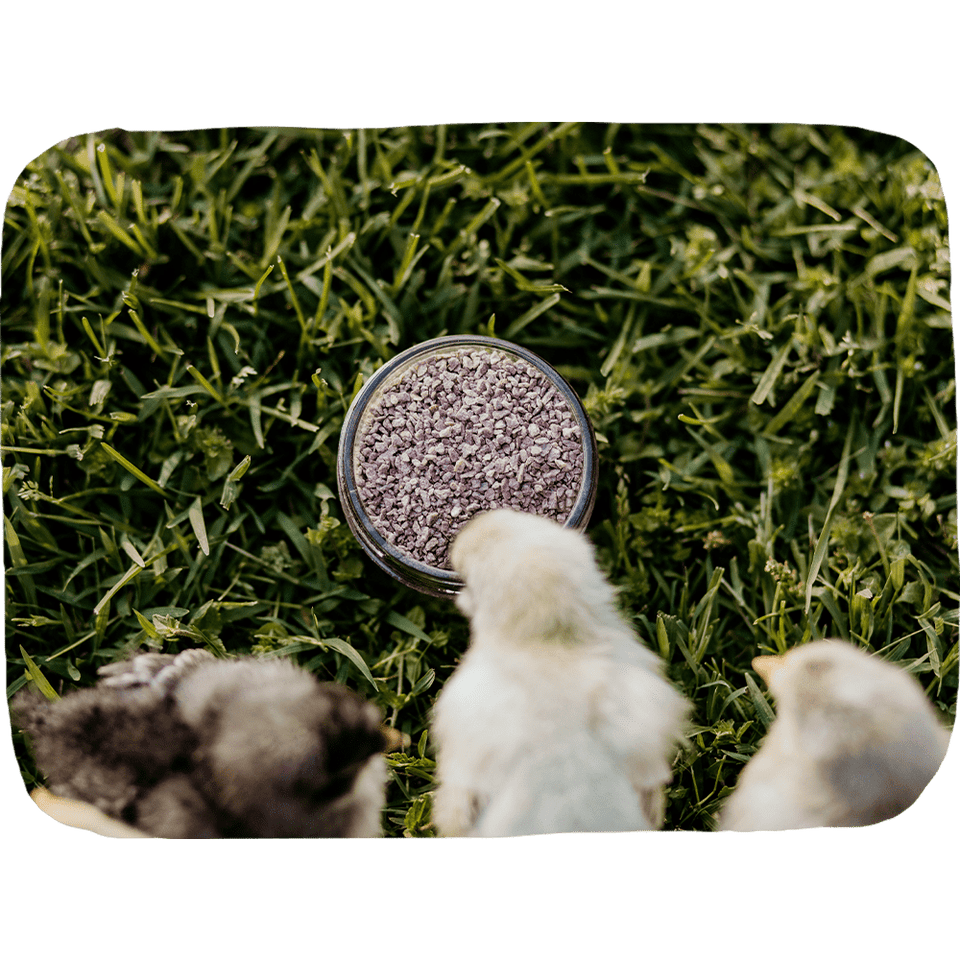
4. Made in the USA
Rose quartz has a beautiful soft pink hue and is mined right here in the USA.
An Essential Digestive Aid
Chickens don’t have teeth—they rely on grit to grind down food in their gizzard. Rose quartz is a durable mineral, so it’s effective and long lasting. It also sparkles in the sunlight and is said to have calming properties. We strongly endorse healthy, happy, chill chickens with subtle bling.
Learn More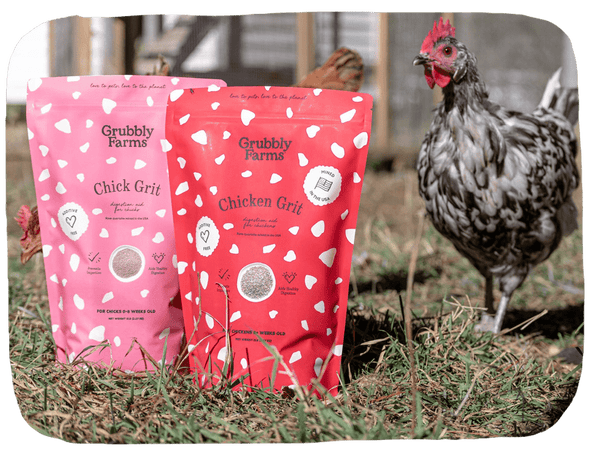
Love from our Grubbly family
FAQ
-
Grit is essentially tiny, sharp, insoluble pieces of rock. Free-ranging chicks and chickens instinctively ingest rocks to help digest their food because they don’t have teeth.
-
Grit is an important part of digestion. Since chickens don’t have teeth, they rely on grit to help grind down food in their gizzard. An absence of grit can create digestive problems such as impaction or sour crop. A strong, healthy gizzard means healthy digestion, which improves nutrient absorption. This is critical for egg production, egg quality, and a hen’s overall health.
-
It depends on where they free range. It’s hard to know if they are getting enough, and that’s why you should offer it. Sand or fine dirt won’t do the trick. If they don’t need it, they won’t eat it. In short, we recommend putting it out and refilling as needed. A single bag can last months!
-
No, oyster shells are often provided as a source of calcium, but they are not an ideal grit. Stomach acid breaks down oyster shells making them a less effective digestive tool as compared to a more durable mineral like rose quartz.
-
We love rose quartz as chicken grit for a lot of reasons. It’s a durable mineral that doesn’t easily break down by the acid in the gizzard, so it’s very effective and lasts a long time. Grubbly Farms rose quartz is sourced from mines in the USA. It is free of chemicals, safe for the environment, and a beautiful natural pink that sparkles in the sunlight. Who doesn’t love a little bling in the hen house? And while we can’t make any “official” claims, we hear rose quartz has soothing properties, promoting calm and balance. We all know a chicken who could use that! We strongly endorse healthy, happy, chill chickens with subtle bling.
-
Chickens should always have access to grit. Keep it in a separate feeder, so they can help themselves whenever they need it. It’s also important to make sure they always have access to fresh, clean water. Grit can make them thirsty.
-
Not typically. Grit is not a treat, so they are not inclined to overeat it; however, if it is mixed in with food or treats, it could cause accidental over ingestion, which could lead to impacted crop. If kept separately, or sprinkled in bedding or on the ground, they will only eat it when they need it.
-
You should always keep a separate dish of grit, but you can also sprinkle it in their bedding or on the ground so they can scratch and peck for it. If it’s the first time they’ve been provided grit, you can add some to their feed just to introduce it.
-
No, grit should always be provided separately from feed.





